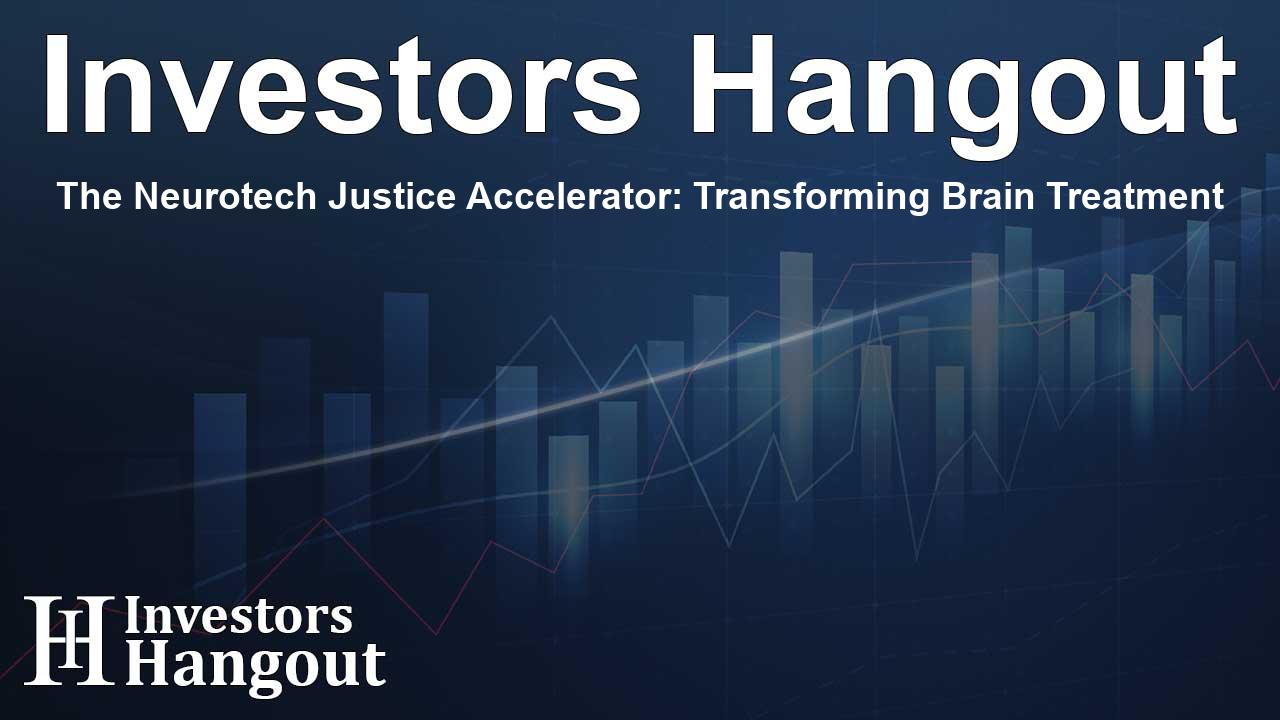The Neurotech Justice Accelerator: Transforming Brain Treatment

Revolutionizing Neurotechnology Approaches
The Dana Foundation has introduced the Neurotech Justice Accelerator at Mass General Brigham, marking a transformative milestone in the integration of neuroscience with societal needs. This initiative encompasses a five-year, $8.6 million program designed to enhance equitable access and address the ethical complexities associated with neurotechnological advancements in medical and legal fields.
Addressing Ethical Implications
Dr. Caroline Montojo, the president and CEO of the Dana Foundation, emphasizes the importance of understanding the ethical dilemmas presented by emerging diagnostic technologies. These innovations could significantly influence patient care decisions, especially for individuals in a vegetative state. NJAM aims to empower clinicians and legal experts to navigate the potential and challenges of neuroscience effectively.
Interdisciplinary Training Initiatives
The program gathers experts from esteemed institutions including Massachusetts General Hospital and Harvard Medical School, creating a collaborative environment that integrates training across disciplines such as law, ethics, neuroscience, and clinical practice. This interdisciplinary approach ensures a comprehensive understanding of how neurotechnology can be ethically applied in real-world scenarios.
Focus on Equitable Access and Community Engagement
NJAM’s training incorporates research on the fair application of neurotechnologies and their role in criminal justice reform. Community partnership is also emphasized, encouraging meaningful exchanges between scholars and community members most affected by neurotechnological developments.
Driving Innovations in Clinical Practice
With advancements in brain imaging and deep brain stimulation, NJAM is dedicated to improving treatment efficacy for neurological disorders. The program offers mixed-method research training to facilitate the ethical uptake of these technologies within clinical settings. By employing community-based participatory research, the NJAM team will identify barriers to technology access and propose solutions for promoting justice in patient care.
Implications in the Legal Framework
Neurotechnology raises pressing legal questions regarding its use in courtrooms. NJAM addresses these concerns by offering neurolaw training, equipping participants to explore the implications of using neuroscientific evidence in legal proceedings. This aspect is critical, as it aims to ensure equitable access to neuroscience tools for all litigants, regardless of their financial capabilities.
Ensuring Responsible Use of Neuroscience
As judges increasingly deal with evidence derived from neurotechnologies, ethical concerns surrounding privacy and access are becoming paramount. Dr. Francis X. Shen, an expert in law, ethics, and neuroscience, articulates the need for comprehensive training to prepare the next generation of neurolaw professionals to tackle these issues effectively.
Empowering Communities with Science
The NJAM initiative recognizes the vital role of local organizations in supporting communities. By equipping scientists with effective communication skills, NJAM aims to foster community engagement that informs policy alternatives and research priorities. Dr. Gabriel Lázaro-Muñoz highlights the necessity of incorporating community voices into the scientific dialogue to create impactful solutions.
About The Dana Foundation
Founded to advance neuroscience that positively impacts society, the Dana Foundation is dedicated to exploring the interplay between neuroscience and social challenges. With a commitment to maximizing the benefits of neuroscience, the foundation works tirelessly to implement solutions that reflect societal aspirations and values.
Frequently Asked Questions
What is the Neurotech Justice Accelerator?
The Neurotech Justice Accelerator is a program initiated by the Dana Foundation aimed at integrating neuroscience and societal needs over five years with an investment of $8.6 million.
Who leads the Neurotech Justice Accelerator?
The program is spearheaded by esteemed professionals from organizations such as the Dana Foundation, Massachusetts General Hospital, and Harvard Medical School.
What training does NJAM provide?
NJAM offers interdisciplinary training focusing on equitable access to neurotechnology, ethical applications in clinical settings, and the integration of neuroscience in the legal system.
How does NJAM engage with communities?
NJAM prioritizes community partnership by equipping scientists to engage with affected individuals, ensuring that their voices and experiences shape neurotechnological advancements.
What are the broader goals of the Dana Foundation?
The Dana Foundation aims to foster advancements in neuroscience that serve societal needs while advocating for ethical applications of scientific research.
About Investors Hangout
Investors Hangout is a leading online stock forum for financial discussion and learning, offering a wide range of free tools and resources. It draws in traders of all levels, who exchange market knowledge, investigate trading tactics, and keep an eye on industry developments in real time. Featuring financial articles, stock message boards, quotes, charts, company profiles, and live news updates. Through cooperative learning and a wealth of informational resources, it helps users from novices creating their first portfolios to experts honing their techniques. Join Investors Hangout today: https://investorshangout.com/
Disclaimer: The content of this article is solely for general informational purposes only; it does not represent legal, financial, or investment advice. Investors Hangout does not offer financial advice; the author is not a licensed financial advisor. Consult a qualified advisor before making any financial or investment decisions based on this article. The author's interpretation of publicly available data shapes the opinions presented here; as a result, they should not be taken as advice to purchase, sell, or hold any securities mentioned or any other investments. The author does not guarantee the accuracy, completeness, or timeliness of any material, providing it "as is." Information and market conditions may change; past performance is not indicative of future outcomes. If any of the material offered here is inaccurate, please contact us for corrections.